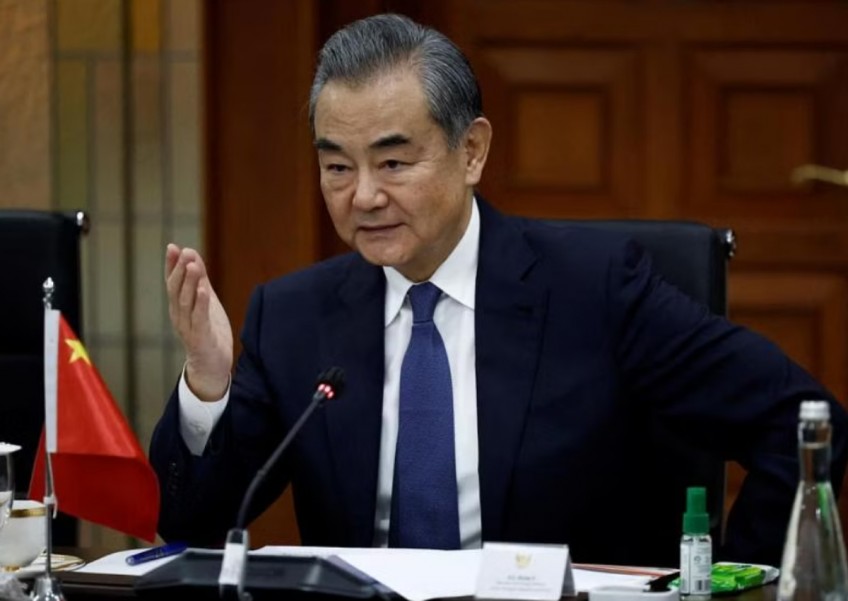China's foreign minister says major powers should avoid rivalry in the South Pacific


BEIJING — China's Foreign Minister Wang Yi on April 20 said the South Pacific region should not become an arena for major power rivalries and that its assistance to countries there is free of political conditions.
The Pacific has become a source of intense competition for influence between Washington, which has traditionally viewed the region as its backyard, and Beijing, which has targeted Taiwanese diplomatic allies there.
Wang made the comments at a joint press conference with his Papua New Guinea counterpart during a visit to the country.
"The South Pacific region should not become an arena for great powers to play games, and no country should treat the island countries as its own 'backyard' or engage in zero-sum games and exclusionary arrangements," Wang said.
He said any attempt to provoke confrontation in the South Pacific region does not serve the needs of its people.
"China's engagement and co-operation with the South Pacific island countries is dedicated to mutual support and assistance to achieve common development, without any geopolitical self-interest," he said.
He added that China is willing to maintain high-level exchanges with Papua New Guinea and open negotiations for free trade agreements as soon as possible.
State media Xinhua reported Wang saying that all parties should respect the choice of the people of Solomon Islands and refrain from interfering in their internal affairs.
The Solomon Islands' pro-China Prime Minister Manasseh Sogavare has retained his seat in a national election, local media reported late on April 19.
Wednesday's election was the first since Sogavare struck a security pact with China in 2022 and drew the Pacific Island nation closer to Beijing, a move that sparked concern in the US and Australia because of the potential impact on regional security.
ALSO READ: Philippines says decision to strengthen ties with Japan, US a 'sovereign choice'